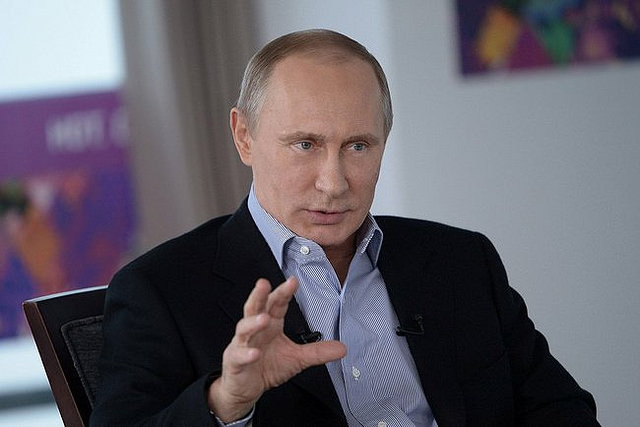
How Putin’s Crackdown on NGOs Threatens Opportunities for Public Diplomacy with Russia
President Putin’s recent crackdown on non-governmental organizations (NGOs) is a method of suppressing domestic dissent, but it also poses a threat to global track-two diplomacy. The Kremlin’s stifling of anti-government criticism harms Russian civil society and the nascent culture of activism that has struggled to grow since the fall of the Soviet Union. However, the secondary effect of Putin’s crackdown is felt on the international level, where bilateral cooperation between American and Russian citizens is rendered more difficult, even impossible. In a context where government-to-government collaboration is stagnant, NGOs act as invaluable resources for facilitating communication between people.
Scholars have historically advocated for NGOs as agents of diplomacy in Russia, but given Putin’s crackdown, continuation of this work is threatened.
Roots of Repression
The move against NGOs began in 2012 when Putin signed the “foreign agent law.” This law stipulated that organizations receiving any foreign funding must register as “foreign agents,” imposing fines and other bureaucratic hurdles on groups that did not comply.
Putin ratcheted up the pressure further when he passed a second law in 2015 giving the Russian government extrajudicial power to shut down “undesirable organizations,” defined as those that threaten “the constitutional order” or “defense capacity” of the state. This law targeted organizations with U.S. ties, including the Carnegie Moscow Center, Human Rights Watch, and Amnesty International, which was subject to a series of government raids on their Russian offices.
In recent years, Putin’s repression takes the form of financial manipulation. Independent news outlets face fines that are thinly-veiled attempts by the government to force them to shut down. In 2018, The New Times turned to a crowdfunding campaign in order to stay afloat after being hit with a 22 million ruble ($329,000) penalty. Putin has also targeted nine U.S. media outlets operating in Russia, including Voice of America and Radio Free Liberty.
The “foreign agents” and “undesirable organizations” laws, as well as use of financial manipulation, represent Putin’s incessant effort to limit international—and especially Western—NGOs’ capacity in Russia.
Putin has argued that his targeting of U.S. media outlets and organizations is retaliation against the U.S. Department of Justice’s insistence that RT (formerly Russia Today) register as a foreign agent under the Foreign Agents Registration Act (FARA). Yet given Putin’s extended efforts to repress NGOs with international ties, retaliation is not the correct description.
Rather, Putin has embarked on a mission of repression that extends both domestically and internationally. In Russia, the result of this campaign is a profound weakening of the non-profit sector and the threat of retribution in response to activism, evident by the increase in political prisoners (296 this year, up from 46 in 2015). The promise of using traditional public diplomacy to mitigate political tensions is severely challenged by Putin’s mission to prevent domestic dissent and his intransigent mistrust of international influence.
Going Forward
The ousting of programs such as the Peace Corps and FLEX (Future Leaders Exchange) from Russia suggests that different types of NGOs are needed to fill their place as the bastions of public diplomacy. Organizations focused on scientific and cultural collaboration—two areas where U.S.-Russia cooperation has continued despite geopolitical fluctuations—are more vital now than ever. For example, the American Association for the Advancement of Science’s Center on Science Diplomacy facilitates global collaboration via conferences, cooperative research, and international training. The Council on International Educational Exchange provides the same resource of global citizen-to-citizen communication in the education sector. These organizations represent the type of NGO needed to shape more effective global policy today, because they allow people of different countries to communicate directly with each other about issues of shared interest. This public avenue of exchange is vital when governments are unwilling to negotiate.
As Putin reverts to Cold War-era isolationism driven by suspicion of both his domestic and international critics, opportunities for state-sponsored public diplomacy are rapidly closing. As Putin understands the public diplomacy playbook that contributed to the fall of the Soviet Union, Russian society is becoming less accessible to government-sponsored public diplomacy programs like the Peace Corps and FLEX. In theory, our hope could lie instead in smaller, privately funded organizations focusing on non-controversial topics like science, technology, and academic research. But with the restrictive laws on NGOs, this avenue may also be cut off.





